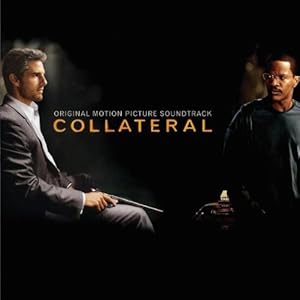Working together on Heat
(only four years prior to The
Insider) meant that Al Pacino
and Michael Mann clearly had chemistry worth exploring. Replacing the
action-sequences with political intrigue and tense paranoia meant this could
hardly be billed as a follow-up. The
Insider tackles the big business of tobacco and the ongoing contradiction
of American capitalism – whereby the almighty dollar trumps justice. Except in
this case, investigative journalism alongside the justice system mounted a
campaign that resulted in a $368 billion settlement between the four largest tobacco
companies in America. Suffice to say, Brown and Williamson – the ‘villainous’
company at the centre of The Insider
– merged with Reynolds American in 2004 and is still the second-largest tobacco
company in the states.
Written by Eric Roth and Michael Mann, The Insider dramatizes the events leading to the aforementioned
campaign. Whistle-blower Jeffrey Wigand (Russell Crowe) revealed on CBS expose 60 Minutes that, in a court of law,
Brown and Williamson lied and covered up their increase in addictive supplements
to their cigarettes. This could be merely the small man tackling the big
corporation with the support of a kindly lawyer – a la Erin Brokovich. Instead, the core of the story is in the hands of 60 Minutes producer, Lowell Bergman (Al
Pacino). Through Bergman, we see the conflicted ethics of those who work in
journalism – a far call from the phone-tapping and criminal activities of those
involved in the Leveson inquiry. Bergman convinces Wigand to tell his story –
and to tell the whole truth for the sake of us; the public. Roger Ebert, rating
the film 3.5 out of 4, rightfully compares the film to All The President’s Men, but crucially notes the very personal
nature of this story: “The Insider had
a greater impact on me than All the
President's Men, because you know what? Watergate didn't kill my parents.
Cigarettes did.”
It is easy to forget how connected an enormous corporation, sitting
atop a towering skyscraper connects to the working man – but increasing the
addictive supplements in cigarettes is a pretty clear link. Michael Mann
tackles the story in long-form, running to nearly three hours. Introducing
Bergman as he attempts to snag an interview with a known terrorist in the
opening sequence, on one level jars with the context and tone of the film, but
also highlights how enemies – as dangerous and sinister as religious extremists
are also within the western world. Indeed, Crowe as the fidgety,
possibly-unhinged Jeffrey Wigand plays with our own assumptions as we question
more than merely the corporation. Pacino plays Lowell Bergman as the conflicted
man a journalist must become – while his own stand against CBS’s decision to
screen a cut version of the interview places him on a forced vacation, when he
contacts Wigand – holed up inside a hotel after his family has left him – we
see the contrast between the beach house Bergman is in and near suicidal
Wigand. Bergman may have played an important role in illuminating the issue,
but we need more Wigand’s.
The Insider does
explore avenues of character that prolong the events. Wigand’s failed marriage
is clearly set-up and broken down, while Bergman’s relationship with host Mike
Wallace (Christopher Plummer) is constantly a source for comparison. The
prestige and legacy Wallace wants to leave behind is set against the purpose –
and cost - of the job itself. Indeed, Bergman is fighting for what he believes.
These sub-plots, though something Mann often explores, detract from the core of
the story and can stagger the story. But what a story it is. Often the media
and court system can be perceived as merely a villain and frustration to the
greater cause, so it is refreshing to see how they can support the just and the
good. And Al Pacino is remarkable.
This post was originally written for Flickering Myth on March 20th 2014









